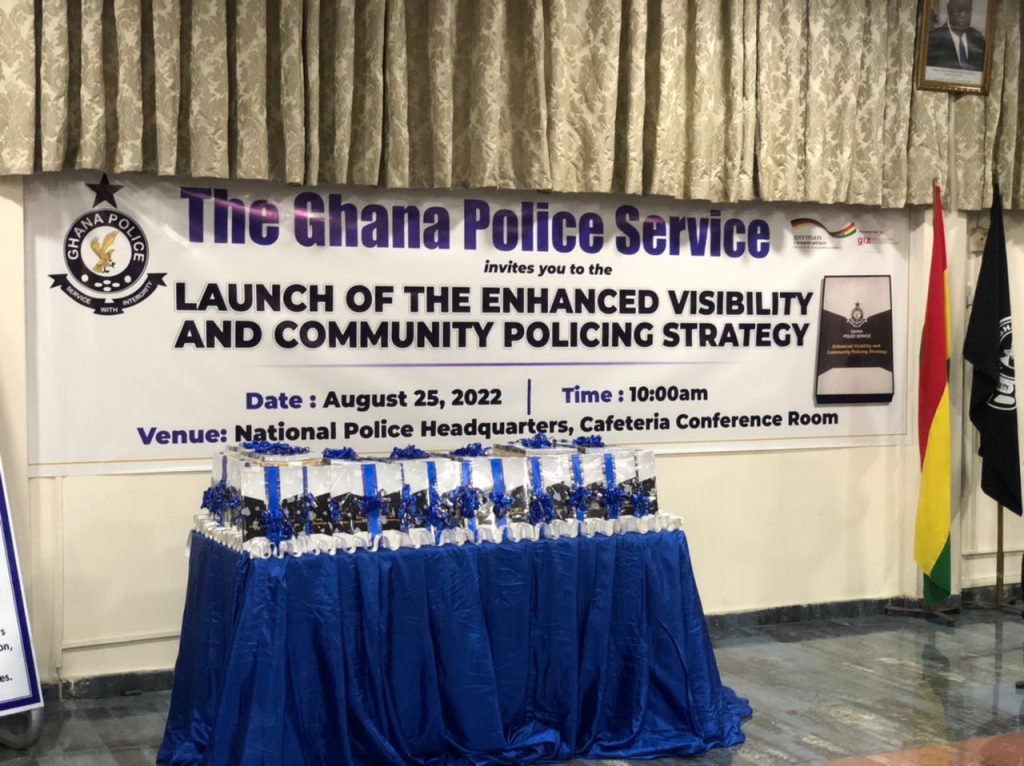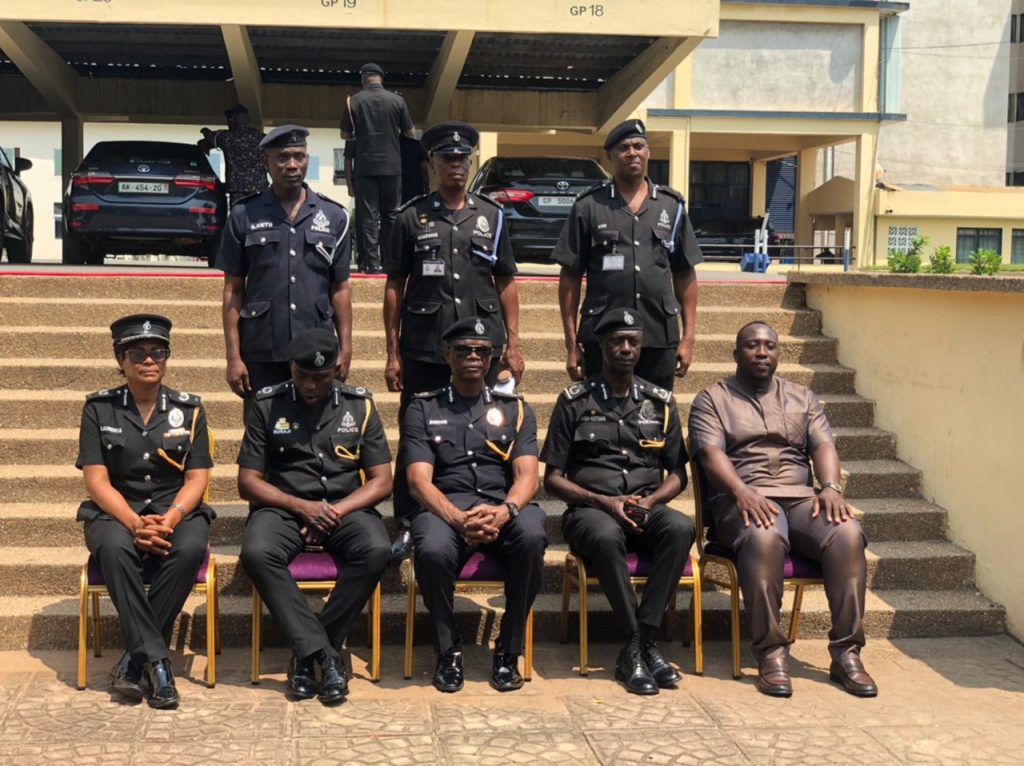By Eric Appah Marfo/Philip Woshime
Accra, Aug.25, GNA — The Ghana Police Service Thursday launched an Enhanced Visibility and Community Policing Strategy to deepen efforts to transform the Police, make communities safer and increase the quality of lives of residents.
The Strategy also provides a structured framework to strengthen and enhance police-public collaboration to combat crime.
In a speech read on his behalf, Dr George Akuffo Dampare, Inspector General of Police (IGP), said the strategy integrated key elements of the Community Crime Fighting and Removal of Fear of Crime Initiative, which he was currently spearheading.
He said in the past decade, the Community Policing concept had made significant contribution to crime fighting efforts in the country, adding that several police community initiatives were adopted in various communities to complement the traditional policing methods.

The IGP said to further enrich the concept and make it more effective, it had become necessary to increase police visibility in zones where the fear of crime still existed and where crime and anti-social behaviour affected the daily lives of the public.
“Building on past community policing experiences in Ghana and best practices, this enhanced strategy emphasises the need for the Police to collaborate with the public to identify, prioritize and address their concerns. The strategy stresses the need for an improved police visibility in neighbourhoods,” he said.
He said Community Policing Teams would be set up for day and night patrols of smaller defined areas within a police district to be known as “Zones” and the Teams would develop quality relations and rapport with residents and build trust with communities.
Dr Dampare said the Strategy also emphasised crime prevention campaigns in partnership with communities to support the new enhanced visibility patrol concept through Neighbourhood Watch Committees, Residents Associations, Community Protection Assistants, and other stakeholders.
He said it would further ensure that the Police worked more collaboratively with opinion leaders and state agencies to ensure law, order and security in communities.
“Also, District Commanders, who would be the main drivers of the Strategy, will be required to develop Security and Crime prevention plans with stakeholders in their respective jurisdictions. These plans shall become their roadmaps and an important element for Police accountability locally,” he added.

The IGP said the Strategy was based on research, consultation with Police Officers across the ranks and was developed by a team of consultants and community policing experts, including both serving and retired police officers and external experts.
He thanked consultants and the Technical Working Group for their efforts in producing the document, paving the way for the implementation of an improved Community Policing Concept in Ghana.
Dr Dampare also lauded the German Development Agency, GIZ for providing support and expertise to the Police to develop the strategy.
He noted that GIZ also supported the Police Administration to organise workshops on the Strategy for District Police Commanders and Inspectors, who would serve as zonal supervisors, within Accra and Tema Police Regions.
The IGP said the workshops served as pilot projects and would be followed by a nationwide rollout of the Enhanced Visibility and Community Policing Strategy in all Police Regions.
Assistant Commissioner of Police (ACP) Reverend Mrs Laurencia Wilhelmina Akorli, Director, Community Policing, said the launch of the book indicated the willingness of the Police to partner the public to teach and learn how to prevent wrongdoing in communities.
She urged community members to promptly alert the Police of any lawless acts through their emergency numbers 18555, 191 or some Police Commanders to stop or reduce crime.
“We want our communities to be safe, secured, and peaceful, and we cannot do that if the community is not part,” she added.
GNA